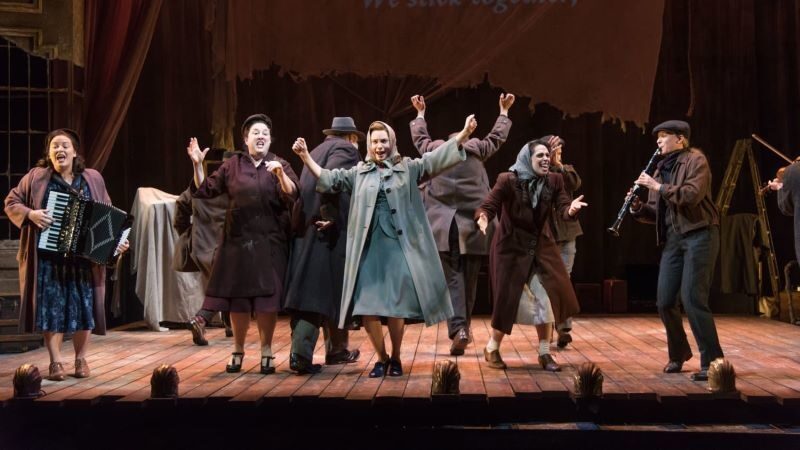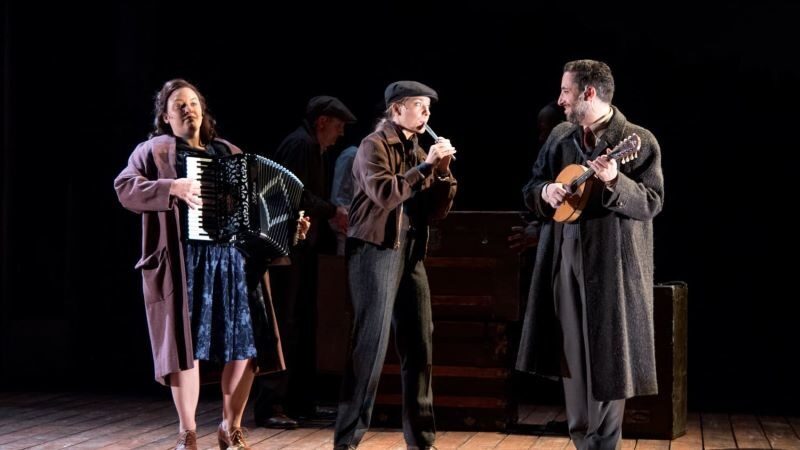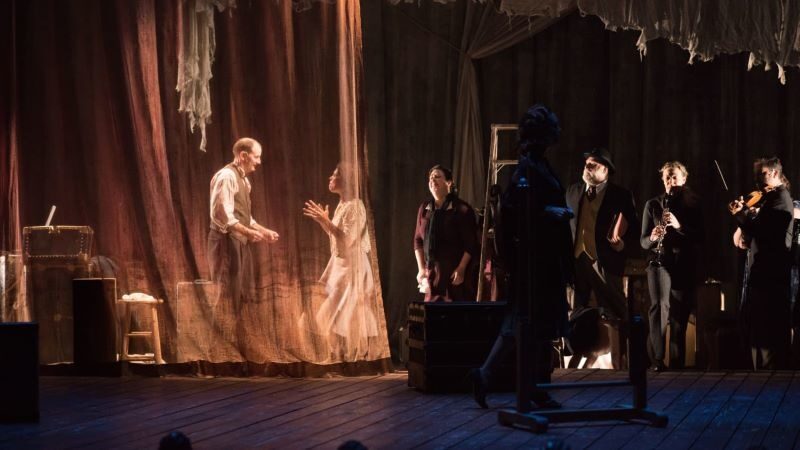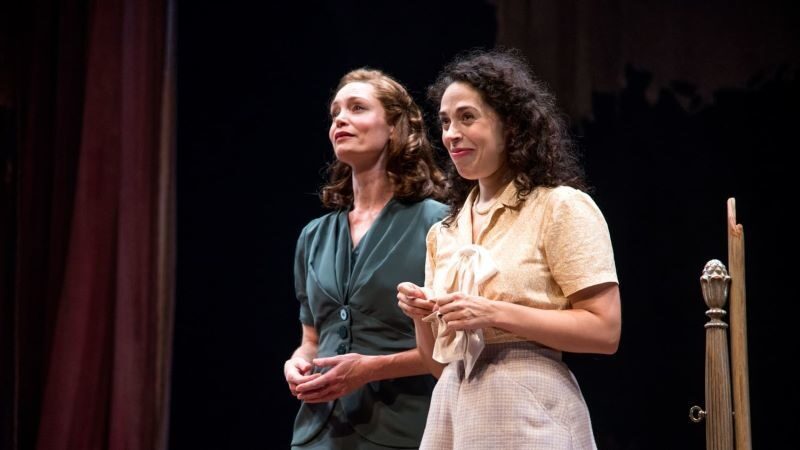Late night karaoke, drama, humor, love, heartache and complex characters all in an hour-forty-five-minute show created by one person? Writer and creator, Sara Porkalob, makes it seem so effortless. The second story in the Dragon Cycle Trilogy, Dragon Mama, is an incredible one-woman show starring Porkalob herself. It details the story of her mother, Maria Porkalob Jr. before and after Sara was born. The actress shares her mother’s journey and the unfortunate, heart-wrenching situations their family experienced during the late 1970s to early-1990s living in America. Sara Porkalob’s play emphasizes that there is much more to a person’s life than meets the eye.
The show recreates two time periods within Maria Jr.’s life. The first act focuses on her early life with her mother and siblings in Hawaii, as well as their life in Bremerton, Washington after they move from Hawaii. There, Maria Sr. works tirelessly as both a waitress and a worker at a bingo hall while raising her children as a single mother. As a result, thirteen-year-old Maria Jr. is left to take care of her younger siblings. The second act deals with Maria Jr. as an adult living in Alaska. Throughout the story, the family faces financial challenges and food insecurity.
Sara Porkalob’s versatile portrayal of her mother’s family is fascinating and draws in the audience. Her storytelling is both humorous and emotional. The stage only has a chair accompanying Porkalob as she performs. It emphasizes that the story is not centered around the setting but rather the actions and the dialogue. By using various tones and expressions, Porkalob is able to differentiate the roles in a way that captures their unique personalities. With numerous characters being added, it is easy to lose sight of the situation that occurs on stage. But with the right body movement and lighting, the audience cannot take their eyes off the story that is unfolding as well the valuable lessons it holds. In addition to the lighting and movement, the music choice makes an impact on her performance. Each song sets the tone and energy of the scene, and the audience gets hooked. The variety of music Porkalob plays during nerve wracking scenes symbolizes that music is the gateway to release her emotions. However, the show has so many quick transitions which can confuse the audience. There are moments where Porkalob goes from an outdoor to an indoor setting or from a flashback to the present and it takes a while for the audience to realize the change.
The turbulent life of Maria Porkalob and her family allows others to comprehend the struggles that Asian Americans face in the United States. Both Maria Porkalob Sr. and Jr. sacrifice their time with their children to make ends meet and provide the family with necessities. Whether it is through working two jobs or consistently moving to secure jobs, such as going to Alaska to work on a fishing boat, these women have to fend for themselves and make difficult decisions to survive.The overarching theme of resilience continues to make itself known throughout the many scenes, particularly to those who may not understand and relate to their actions.
Dragon Mama is the depiction of fortitude of spirit and perseverance in the midst of adversity. Maria Porkalob Sr. and Jr. are matriarchs who undergo unpleasant experiences for self-preservation and choose what’s best for their children. Being Asian Americans in a society full of limited opportunities, they epitomize true grit and express what it really means to rise up against hardships.
Lead photo credit: Sara Porkalob in Dragon Mama at American Repertory Theater. Photo by GretjenHelene.com
The TeenTix Press Corps promotes critical thinking, communication, and information literacy through criticism and journalism practice for teens. For more information about the Press Corps program see HERE.
This review was written as part of an Arts Criticism 101 workshop at Franklin High School in Ms. Roh's Asian American Literature class, taught by Press Corps teaching artist Omar Willey.














